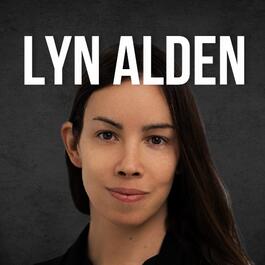
Part 3: How Bitcoin Fixes Money with Lyn Alden
“As the first time where hard asset, bearer asset money can move at the speed of telecommunications globally… it’s one of the first technologies in money that can improve it that’s not centralising, it’s arguably decentralising, and that’s what makes it different than the past 200 years of monetary innovations.” — Lyn Alden Lyn Alden is a macroeconomist and investment strategist. This interview is the final of three shows where we discuss Lyn’s amazing new book: Broken Money. In this show, we recap the flaws in the modern financial system, and then we discuss the potential of Bitcoin as a decentralised solution with its ability to allow hard asset money to move globally at speed. - - - - It is becoming increasingly clear, even to people without expertise in monetary or fiscal matters, that the current economic system is in need of urgent reform. The money supply continues to inflate, rewarding large, well-connected entities at the expense of smaller ones, with liabilities shifting from the private to the public sector. At the state level, many countries are facing serious challenges in accumulating capital and making global payments. In short, money is broken. At a more fundamental level, there are serious technical limitations with current forms of money. Humans have been trying to make gold and silver easier to use for thousands of years, leading to the development of various banking tools. However, the increasing level of abstraction in these tools has caused major issues, especially with the rise of telecommunications. This has led to the current system where physical money is too slow for the modern global economy. Bitcoin is a potential solution to all these issues. It is different from previous monetary innovations as it allows hard asset money to move globally at the speed of digital communications, which could revolutionise the financial system. It is unsurprising that it has emerged at the end of the long-term debt cycle, as an innovation that unified various technical concepts developed over previous decades, with the aim of creating a form of money suitable for the digital age. But perhaps more important than the technical aspects of Bitcoin is the rigid and predictable monetary policy, which consists of two simple rules: a fixed limit of 21 million coins and a halving of the inflation rate every 210,000 blocks (approximately every four years). Its decentralised nature protects this monetary policy from being corrupted. This simplicity contrasts starkly with the complex and convoluted monetary policies of central banks and governments. Bitcoin therefore offers a global, decentralised ledger that allows for easy cross-border transactions and protects against debasement. Whilst its advantages are more immediately obvious to the people and governments in developing countries, Bitcoin’s importance extends to all people and all countries. There are always risks to Bitcoin that the community needs to be prepared for, so it is vital to educate people about Bitcoin and its long-term potential. - - - - This episode’s sponsors: Iris Energy - Bitcoin Mining. Done Sustainably Bitcasino - The Future of Gaming is here Ledger - State of the art Bitcoin hardware wallet Wasabi Wallet - Privacy by default Unchained - Secure your bitcoin with confidence ----- WBD705 - Show Notes ----- If you enjoy The What Bitcoin Did Podcast you can help support the show by doing the following: Become a Patron and get access to shows early or help contribute Make a tip: Bitcoin: 3FiC6w7eb3dkcaNHMAnj39ANTAkv8Ufi2S QR Codes: Bitcoin If you do send a tip then please email me so that I can say thank you Subscribe on iTunes | Spotify | Stitcher | SoundCloud | YouTube | Deezer | TuneIn | RSS Feed Leave a review on iTunes Share the show and episodes with your friends and family Subscribe to the newsletter on my website Follow me on Twitter Personal | Twitter Podcast | Instagram | Medium | YouTube If you are interested in sponsoring the show, you can read more about that here or please feel free to drop me an email to discuss options.
From "The Peter McCormack Show"




Comments
Add comment Feedback